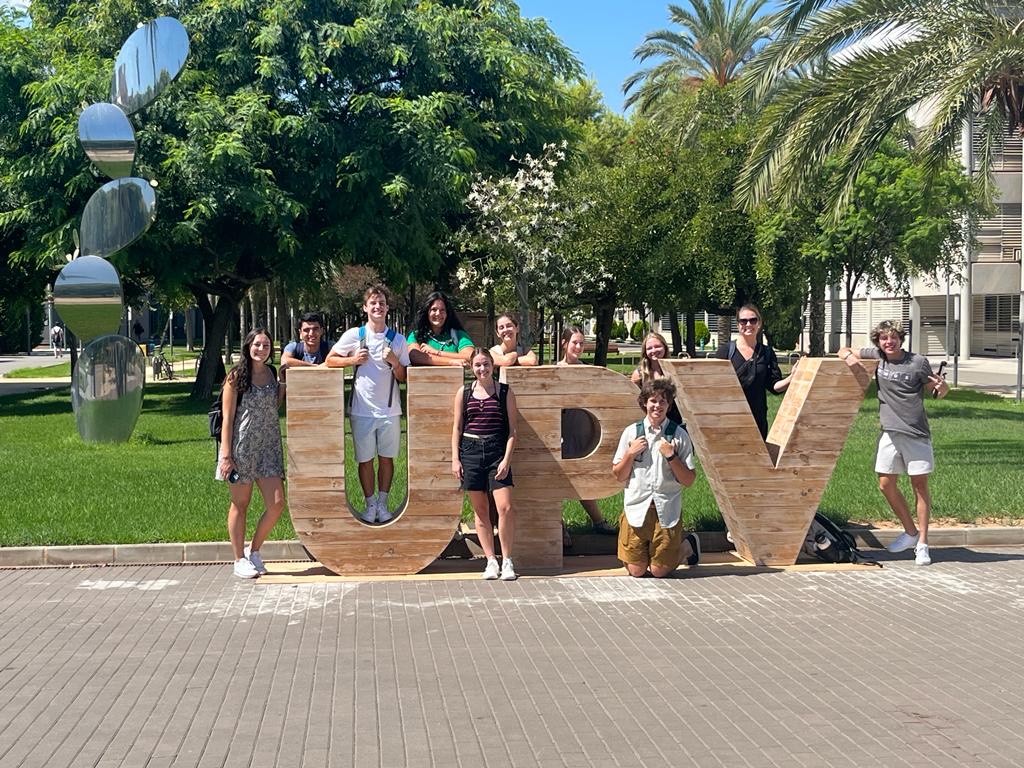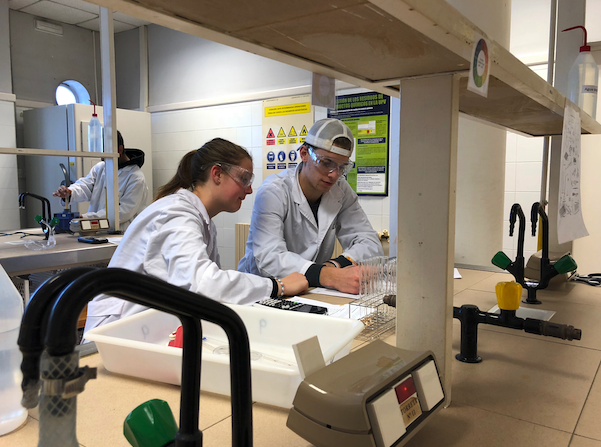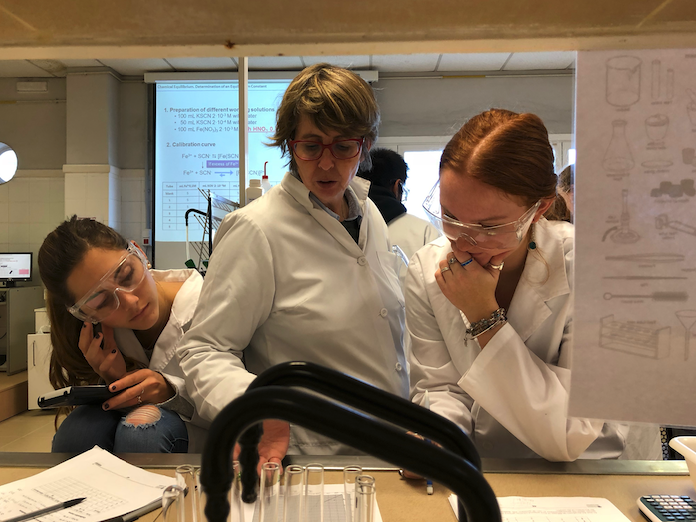USAC and the University of Maine
 Orlina Boteva, the director of the Office of International Programs at the University of Maine, spent years searching for a study abroad program that matched the university’s engineering curriculum. Eventually, she turned to the team at USAC, who were receptive to collaborating on a curriculum integration project.
Orlina Boteva, the director of the Office of International Programs at the University of Maine, spent years searching for a study abroad program that matched the university’s engineering curriculum. Eventually, she turned to the team at USAC, who were receptive to collaborating on a curriculum integration project.
“Picking a very restrictive major that is very heavily sequential was actually more effective,” explained Orlina. The University of Maine and USAC designed compatible semester-long courses on one of USAC’s specialty programs. Orlina worked closely with USAC’s academic affairs team and the department chairs at the University of Maine to build courses that are “almost an identical match.”
Once the program was approved, Orlina and her colleagues in the College of Engineering and Computing created advising sheets for students to clearly see how a semester with USAC could be integrated into their degree plan. Alongside regular engagement with prospective and admitted students, this active outreach has contributed to a steady increase in the number of University of Maine students studying abroad.

Xenia Rofes, a faculty member in engineering at the University of Maine, remarked, “I value the opportunity our study abroad program offers to our civil engineering students, as it fits seamlessly within our curriculum,” allowing students to “stay on track to graduate in four years.” She continued, “It is a great experience for our students to grow.”
Erika Clement, assistant director of education abroad at the University of Maine, highlighted the robust support from the dean, department chairs, and faculty in the College of Engineering and Computing, who have “really put their weight behind [the program].”
Curricular highlights
The University of Maine is committed to offering global learning for all students and graduating globally competent engineers. “We want them to go abroad and actually see how their major is taught and implemented abroad,” said Orlina.
The USAC program creates more access for STEM students and male students, both of whom are underrepresented in study abroad. Engineering students from the University of Maine stay on track for graduation by taking pre-approved courses in their third semester, including General Chemistry (+Lab), Calculus III, Engineering Thermodynamics I, Dynamics, Statics, and Engineering Physics (+Lab), among others.

“It’s 100% worth it,” exclaimed Maddy Noble, a civil engineering student. Peter Birch, a mechanical engineering major agreed, calling it “a life-changing experience.” Ben Wallace, another mechanical engineering major, appreciated that the program “exposes you to different types of people who you most likely will be working with in the future.”
In fact, the USAC program was “one of the main reasons” why Peter selected the University of Maine. “It’s really difficult to study abroad” at most engineering schools, he clarified.
Maddy felt confident that the USAC program would allow her to meet her course requirements and graduate on time. She was “really impressed with the professors,” especially her Dynamics professor who was “great at talking about real-life scenarios or problems.” Maddy continued, “It made it fun to be in class,” and “I learned a lot.”
Peter appreciated the quality of instruction in his Thermodynamics course, highlighting his “amazing teacher” who “loved the class and loved teaching.” Ben, who enjoyed his Chemistry course, valued the diverse backgrounds of his professor and his practical lab experiences.
Join us!
 The impact of the USAC program is clear. Maddy, who overcame her fear of traveling, explained, “The whole world opened up to me now. I definitely want a career where I can travel.” Peter appreciates that the program gave him “a more worldly point of view.”
The impact of the USAC program is clear. Maddy, who overcame her fear of traveling, explained, “The whole world opened up to me now. I definitely want a career where I can travel.” Peter appreciates that the program gave him “a more worldly point of view.”
Maddy encourages other engineering students to take advantage of the University of Maine’s partnership with USAC. “You won’t regret it,” she added. Ben encouraged students to “live in the moment to get the most out of the experience.”
The success of the USAC program for mechanical and civil engineering has inspired other departments at the University of Maine to explore similar models. Orlina explained, “There’s an interest from the deans and the faculty to see if we could find more pathways that meet the students’ needs.”
Erika’s advice to other institutions is to start with popular or high-yield programs, like engineering at the University of Maine, which offer substantial rewards.
If you’re interested in creating more study abroad pathways for your students, complete our Curriculum Integration Interest Form or contact Dr. Jeremy Doughty.

